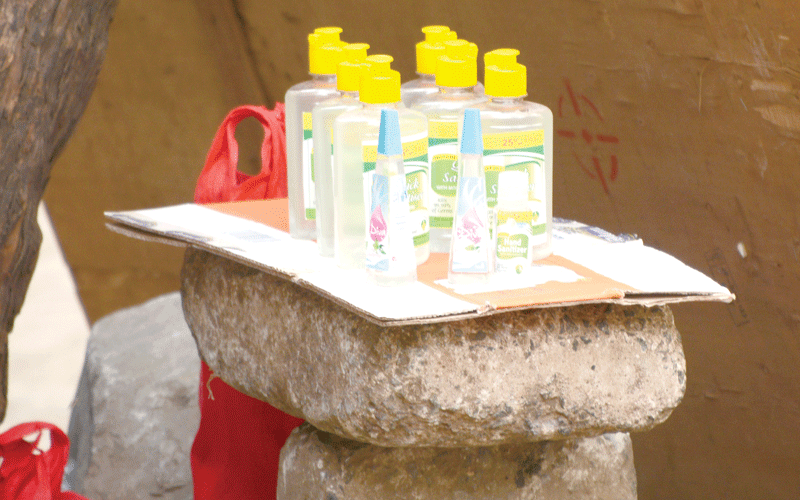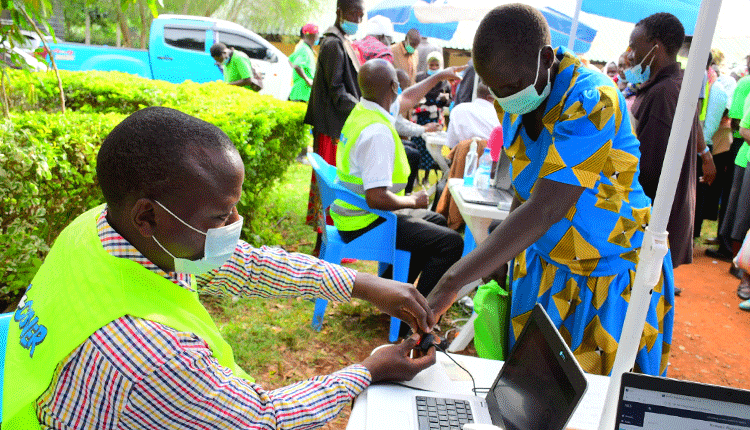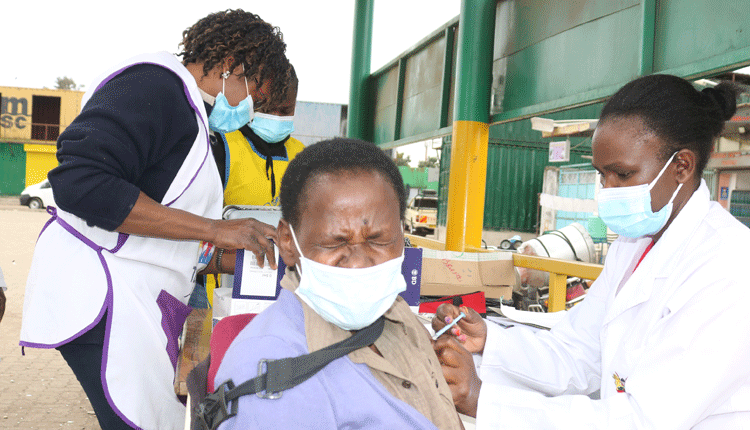Growing threat of substandard, fake sanitisers

On March 12, the country was locked up in tense moments of Covid-19 pandemic, which had just struck.
Like many who had found themselves ensnared in the sweeping global uncertainty at the time, Doris Dama, a mother of two in the Mkomani area of Mombasa, was keen to protect her family.
She was in a rush to scout for hand sanitisers at a local shopping mall when she realised they were out of stock.
However, a hawk-eyed shop attendant who noticed her clear despair of missing the precious commodity, approached and assured her he would help her find one.
“In desperation, I pleaded with him to help me get the hand sanitizers because I direly needed them.
We exchanged contacts, and directed him to my place where he delivered a dozen 75 ml bottles of the hand rub.
They were not the popular brands but I sacrificed and bought them anyway,” she said.
Despite coughing out an exorbitant Sh2,400 for the bottles, which ordinarily go for between Sh1,000 and Sh1,500, Dama says she was still comfortable as long as it would help protect her family from contracting the virus.
At the time, she did not care to scrutinise the labeling details to ascertain the safety of the hand rub. She would later learn that a man in the neighborhood is among the fast rising manufacturers of locally made hand sanitizers that are fast flooding the market.
And after the sensitisation by the Ministry of Health (MoH) on how a quality hand rub should look like, Dama started being keen to what she had hurriedly bought.
Unsuspecting clients
Dama’s experience mirrors the plight of thousands of Kenyans who have fallen prey to rogue manufacturers of the counterfeit sanitizers who have taken advantage of the pandemic to make a kill.
Even corporate have not been spared by the fraudsters who now hop from one office or residence to the next.
The substandard sanitisers have also found their way into most chemist outlets in Mombasa where they are being sold to unsuspecting clients at a “profitable” price.
For instance, in one of the chemists near Kwa Karama in Kongowea, the said sanitizers are displayed prominently on the shelves, with poorly spelt labels.
With this kind of situation, medics now warn Kenyans could be risking exposure to the virus by over-reliance on sub-standard hand sanitizers.
This is even as the country continues to experience a surge in Covid-19 infections.
“Kenyans tend to fancy sanitizers while some of them don’t meet the World Health Organisation (WHO) standards.
The only sure way of weakening the virus is by washing hands thoroughly using soap and running water,” reckons Kenya Medical Association Coast Branch vice Chair Dr Riaz Kasmani.
WHO has published the guide to Local Production of WHO-recommended Hand rub Formulations to help countries and health-care facilities to achieve system change and adopt alcohol-based sanitizers.
In May, Kebs suspended the permits of eight hand sanitiser brands for not meeting the set requirements.
According to Kebs Managing Director Bernard Njiraini, samples of the products were picked from various market outlets and presented for testing at their laboratories and were found not to comply with the requirements.
Key parameters
For a hand sanitizer to be allowed for sale to the general public, Njiraini observed the standard of compliance is KS EAS 789: 2013: Kenya Standard Specification, where the key parameters to be complied with include: a minimum ethanol content of 60 per cent, bactericidal efficacy pH which should be 6-8, packaging as well as labeling and marking requirements.
“Alcohol is the main antibacterial/antiviral component of the sanitiser. Most of the ones which failed in this parameter also failed the bactericidal efficacy test which automatically is a function of the ethanol content,” the Kebs boss said.
“Other hand sanitizers among the eight were being offered for sale without a valid standardisation mark, which is in contravention of the law- CAP 496 (the standards act).”
Others , according to Njiraini, did not meet the labelling requirements as set out in the guidelines. For instance, he said some did not have names and addresses of manufacture and batch numbers.
“These are key parameters to facilitate traceability in case of a danger to human safety and the product has to be recalled from the market.”
To tell whether the hand rub is genuine and meets the recommendations, the MD says one is required to send the message in the format SM#code to 20023.
“This code is affixed on all products. It reveals name and address of manufacture and SM status (valid or not valid). We encourage Kenyans to keep using this platform to tell genuine from fake brands,” he says.















